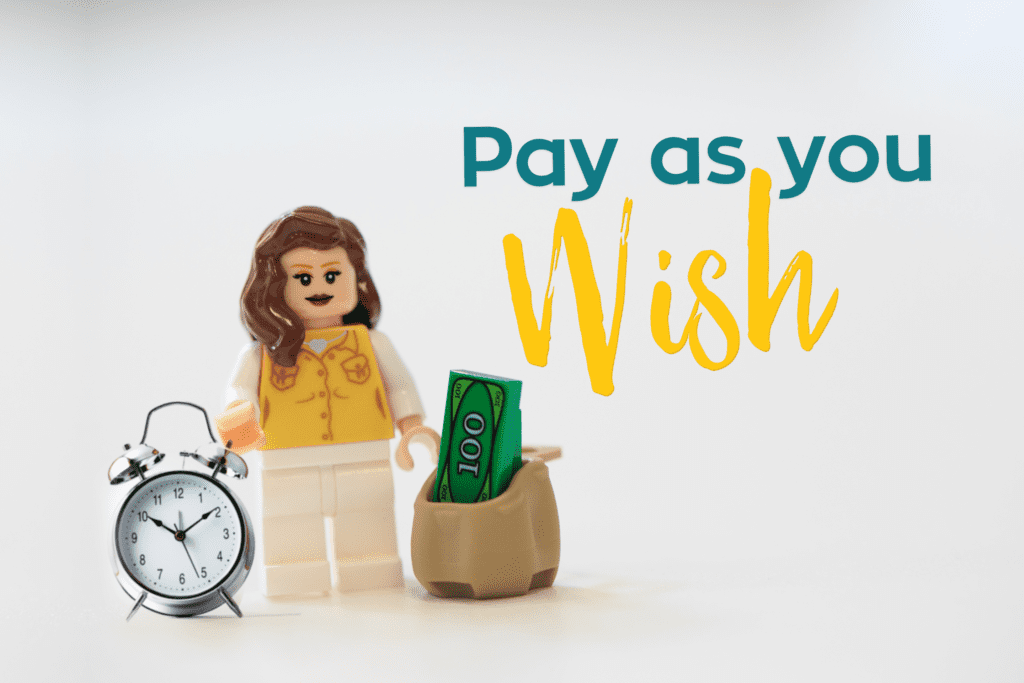
All your clients, from the very best to your most difficult, are looking to you for help and the best clients understand how much value you provide.
You are likely feeling the pull of wanting to be helpful, while also wanting to stay in business yourself. How do you charge your clients for services during the Covid-19 crisis?
Here’s what you can do to help each of them.
Be firm but fair.
Considering what you would do pre-virus times, how do you help your clients in need? Would you reduce services, offer extra help without being paid, let them out of their agreed upon contract early?
Whether it’s changing a payment process or reducing a service offering, let them know what you are willing to do for them. With generosity at your core, answer the above questions and then move forward with your plan to help.
You are a savvy person. You know your clients well and will be able to tell if they are trying to take advantage. Beyond that, you literally have access to their accounts to know what money they have. You’ll be able to adjust and make decisions or have conversations accordingly.
Adjust your process on a client-by-client basis.
Be willing to change your process for the clients you absolutely love and trust and want to help in any way possible.
For example, you may have a client who’s been with you for 6 years and has never missed a payment. You’ve been chatting with them a lot recently, they’ve been vulnerable and open with you and you know exactly what’s going on with them. For this type of client you may choose to extend their time between payments or spread out their cost more than you normally would.
But you don’t have to do this for everyone.
You might have another type of client who always has excuses and rarely pays their invoice on time. They might have already asked you to cheat the system. For this type of client you’ll want to keep to your standard contract terms.
Go with your gut (and a record of the client history) to decide which clients to be flexible with and which to stick to the hard and fast boundaries.
Make it clear what they get and don’t get.
If you haven’t been firm on boundaries, now is the time to start. Let your clients know what they will receive if they do pay, what they won’t receive if they don’t pay and what you are giving them in generosity.
Regarding generosity, be clear if you intend to “give it away” right now but in the future will ask them to pay. Putting an end date on this boundary is a good way to make it clear (i.e. you’ll be receiving this service for free until May 31st at which time to continue service you’ll need to pay [x]).
Not being clear creates an expectation that they’ll receive the service for free every time, whether we’re in a global crisis or not.
Have honest conversations about the value your clients are receiving.
As accountants you always want to make sure you are charging for the value you offer. And quite frankly your services are now more valuable than ever. Make sure your clients know this. It doesn’t mean you need to up your pricing game during lockdown, but it does mean you can let them know how much you are helping.
Saying “normally this would cost x” is totally an okay thing to do- not as a sales tactic but as a “this is really how valuable I am” conversation.
This is also an opportunity for you to go sit-down with your clients (virtually of course :)) and go through all the services they currently have, talk about what they need and don’t need and what’s the most useful for them to get through this crisis.
This might feel scary, but it’s better to have an honest and up-front conversation with them about what they truly need than to presume all is well and have them suddenly try to cancel everything all at once.
Help your clients understand the “knock-on” effect.
There was a tweet floating around from an accountant who had a client asking for free services. When the accountant responded with the value they were providing and how they needed to make sure they weren’t giving everything away for free, the client responded “Oh is the virus affecting you too?”
Yes. Yes it is.
Some of your clients (bless them) may be blissfully unaware of your own situation. In times of crisis, many people go inward and it makes it hard for them to see outside their individual circumstances.
Instead of taking a defensive approach, take Michelle Obama’s advice “When they go low, we go high.” Explain to your clients how you can help them to avoid the knock-on effect.
James Ashford recorded a video on this knock on effect. He uses dominos to show how your client’s decision impacts you and impacts others. The general principle is that if you as the accountant do everything you can to protect your clients, then their business will be protected.
In turn, your accounting firm will be protected as well.
If you do decide to change your terms or give special offers:
- Consider an offer requiring your client to give something too. Maybe they have to sign up to Xero or they commit to a small monthly fee. Maybe they agree to pay less now and more later.
- Give the biggest value to your clients and those you have relationships with. Care for them first.
- Give away INFORMATION free, and in some small way still make people pay for IMPLEMENTATION. You can record videos, write blogs and give away detailed “how tos.” You can send them apps to help them DIY. If they don’t want to go that route, they can pay you a fee to do it for them.
Start thinking about the assets you are creating for future marketing.
Everything you are creating right now can be categorized and used in the future. Consider how you might organize this and create even more content based on what you’ve already started.
Here are just a few things you can do:
- Set patterns for the emails you send to clients including how often you send emails, who you are sending them to, and what action you want your client to take after reading your emails.
- Turn your email content into blog posts. Creating that “stackable content” where emails turn into blog posts and blog posts turn into short videos. Videos turn into one image on an Instagram post.
- Build community for the long term. Whether it’s a Facebook group or a weekly Zoom check-in, you’re building relationships with your clients and they are building relationships with one another. This will carry far beyond the current state of affairs.
Remember who you want to be at the end of this crisis and act accordingly.
If you set up payment plans, remember to follow through on the boundaries you’ve set in place. This reminds clients that you’ve been flexible for them AND that your services are valuable (and that you know the value of them).
If you’ve built up an online community, make sure it’s something you can maintain after things shift and people go back to “business as usual.” Build it in such a way that people still want to be involved later on.
This experience is also teaching you much about what type of clients you want to serve and what type of clients would be a better fit with someone else. Make notes now about what you are learning. This will help you further your brand and recognize what types of clients are truly best for you.
Whatever you decided to do right now, you’re making a name for yourself one way or another. Move forward with boldness and remember you are doing the very best you can with what you’ve been given.
If you want more help, check out the exclusive COVID-19 helping page for accountants, with resources for your firm during this crisis. You can also join the PF Facebook Community to get support from the PF team and fellow accountants across the globe.

